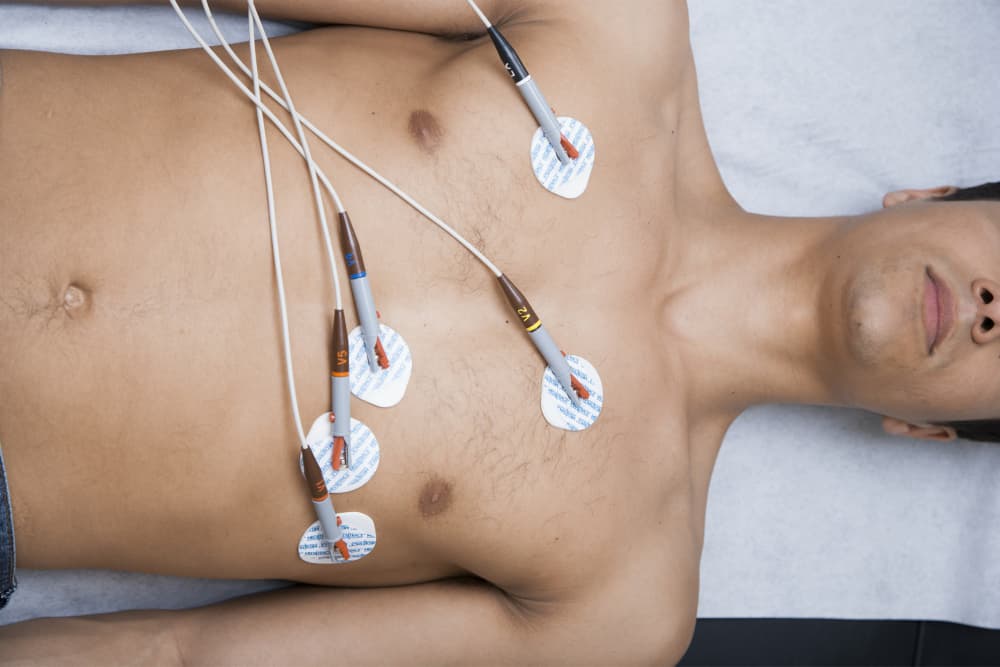Cardiovascular Tech Career Facts
Updated: 2021 Career data comes from the most recent BLS publication. Education information comes from schools, credentialing and accrediting organizations and is subject to change.
Working as a cardiovascular technologist can be an interesting and rewarding career where you can make a big impact on patients’ lives.
According to the BLS, you can complete your cardiovascular technologist education in 2 years by obtaining an associate’s degree and becoming a certified cardiovascular technologist earning a median annual salary of $67,080.
It is an attractive career path for many people who want to enter healthcare and have a stable and secure job future.
So, if you are wondering about the steps to becoming a Cardiovascular Technologist, it’s a fairly straightforward path you’ll have to take, and then you’ll have a well-respected career in an emerging medical field.
The primary path to becoming a Cardiovascular Technologist involves going through a 2-year program so you can earn an Associate Degree in Cardiovascular Technology.
For the first of those two years, you will take more general courses such as biology, and during the second year, the courses will become more specialized and more in line with the specific area of interest you’ve chosen.
You can also pursue a bachelor’s degree called a Bachelor of Science in Cardiovascular Technology. This path would take longer, usually around 4 years to complete this cardiovascular tech degree program.
However, having your bachelor’s would make you more competitive in the job market and eligible for higher salaries.
Cardiovascular technologists must have an associate’s degree in diagnostic medical sonography, cardiovascular technology, or a related field.
After completing your cardiovascular tech training and education, you can actually embark on your new career.
You’ll have to choose between four possible specialty areas covered in your education.
If you wish to become a Cardiovascular Technologist who is licensed and certified, you can earn a certification in echocardiography, cardiac catheterization, vascular ultrasound, or other areas of cardiography specialty.
You’ll need to attend a program that is recognized by the Joint Review Committee on Education in Cardiovascular Technology. It could either be accredited by the CAAHEP, CHEA, or unaccredited. It depends on which certification you’d like to pursue and ultimately the career path you want.
The Cardiovascular Credentialing International (CCI) is a professional organization that offers examinations and educational programs for cardiovascular technicians. CCI was founded in 1968 with the aim of providing credentialing for cardiovascular professionals. Today, CCI offers nine different certifications in both noninvasive and invasive credentialing, making it a comprehensive resource for those working in the field of cardiovascular health.
Each CCI certification for cardiovascular techs has different eligibility requirements.

The ARDMS is a well-known organization that provides certification for medical professionals who use ultrasound technology in their line of work. Founded in 1975, the organization sets standards for patient care, safety, and quality amongst its certified members. The ARDMS is accredited by the American National Standards Institute (ANSI) and offers four credentials, three of which include cardiovascular imaging.
The ARDMS cardiovascular certifications are:
Each of the above ARDMS certifications has its own eligibility and testing requirements.
| Quick Facts: Diagnostic Medical Sonographers and Cardiovascular Technologists and Technicians, Including Vascular Technologists | |
|---|---|
| 2018 Median Pay | $67,080 per year $32.25 per hour |
| Typical Entry-Level Education | Associate’s degree |
| Work Experience in a Related Occupation | None |
| On-the-job Training | None |
| Number of Jobs, 2018 | 130,700 |
| Job Outlook, 2018-28 | 14% (Much faster than average) |
| Employment Change, 2018-28 | 18,000 |
If you are interested in a rewarding, stable healthcare career as a cardiovascular technologist then click on the blue “Find Schools” button to view programs near you.
